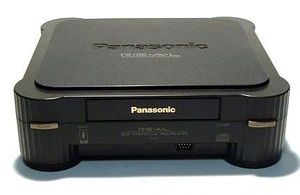Difference between revisions of "3DO emulators"
Jump to navigation
Jump to search
(Added Phoenix) |
(4DO has a libretro port) |
||
| Line 6: | Line 6: | ||
! scope="col"|Operating System(s) | ! scope="col"|Operating System(s) | ||
! scope="col"|Latest Version | ! scope="col"|Latest Version | ||
| + | ! scope="col"|[[libretro|Libretro Core]] | ||
! scope="col"|Active | ! scope="col"|Active | ||
! scope="col"|[[Recommended emulators|Recommended]] | ! scope="col"|[[Recommended emulators|Recommended]] | ||
|- | |- | ||
|style="text-align:center;"|[http://www.fourdo.com/ 4DO] | |style="text-align:center;"|[http://www.fourdo.com/ 4DO] | ||
| − | |style="text-align:center;"|Windows | + | |style="text-align:center;"|Windows, Multi-platform* |
|style="text-align:center;"|[http://www.fourdo.com/downloads/ 1.3.2.3] | |style="text-align:center;"|[http://www.fourdo.com/downloads/ 1.3.2.3] | ||
| + | |style="text-align:center;"|✓ | ||
|style="text-align:center;"|? | |style="text-align:center;"|? | ||
|style="text-align:center;"|✓ | |style="text-align:center;"|✓ | ||
| Line 18: | Line 20: | ||
|style="text-align:center;"|Linux | |style="text-align:center;"|Linux | ||
|style="text-align:center;"|[https://code.google.com/p/3doh/source/list SVN] | |style="text-align:center;"|[https://code.google.com/p/3doh/source/list SVN] | ||
| + | |style="text-align:center;"|✗ | ||
|style="text-align:center;"|✓ | |style="text-align:center;"|✓ | ||
|style="text-align:center;"|✓ | |style="text-align:center;"|✓ | ||
| Line 24: | Line 27: | ||
|style="text-align:center;"|Windows, Linux | |style="text-align:center;"|Windows, Linux | ||
|style="text-align:center;"|[http://www.arts-union.ru/sites/default/files/ph21-win32.zip 2.1] | |style="text-align:center;"|[http://www.arts-union.ru/sites/default/files/ph21-win32.zip 2.1] | ||
| + | |style="text-align:center;"|✗ | ||
|style="text-align:center;"|? | |style="text-align:center;"|? | ||
|style="text-align:center;"|? | |style="text-align:center;"|? | ||
|} | |} | ||
| + | |||
| + | <nowiki>*</nowiki>Only available outside of Windows as a libretro core (e.g. [[RetroArch]]). | ||
===Comparison=== | ===Comparison=== | ||
| − | * 4DO is a fork of the FreeDO emulation project. It is the most compatible 3DO emulator, but only available for Windows. It can [[Overclocking|overclock]] up to 400% of the original 3DO clock speed, which makes low framerate titles (e.g. Doctor Hauzer) much more playable. It allows upscaling the game in a higher internal resolution by up to 2x, but the game is still only rendered at 480p. Severe audio glitches are very common no matter what settings are used. | + | * 4DO is a fork of the FreeDO emulation project. It is the most compatible 3DO emulator, but the standalone version is only available for Windows. It can [[Overclocking|overclock]] up to 400% of the original 3DO clock speed, which makes low framerate titles (e.g. Doctor Hauzer) much more playable. It allows upscaling the game in a higher internal resolution by up to 2x, but the game is still only rendered at 480p. Severe audio glitches are very common no matter what settings are used. A libretro port is also available. |
* 3d'oh seems to have lower compatibility. However, most of the more popular 3DO titles are compatible. 3d'oh has to be compiled via its source code. | * 3d'oh seems to have lower compatibility. However, most of the more popular 3DO titles are compatible. 3d'oh has to be compiled via its source code. | ||
Revision as of 06:53, 2 February 2015
The 3DO Interactive Multiplayer was a games console produced by the 3DO Company in 1993/1994. Due to the unpopularity of the system, the emulation scene is almost non-existent. However, there are a couple of emulators available.
Emulators
| Name | Operating System(s) | Latest Version | Libretro Core | Active | Recommended |
|---|---|---|---|---|---|
| 4DO | Windows, Multi-platform* | 1.3.2.3 | ✓ | ? | ✓ |
| 3d'oh | Linux | SVN | ✗ | ✓ | ✓ |
| Phoenix | Windows, Linux | 2.1 | ✗ | ? | ? |
*Only available outside of Windows as a libretro core (e.g. RetroArch).
Comparison
- 4DO is a fork of the FreeDO emulation project. It is the most compatible 3DO emulator, but the standalone version is only available for Windows. It can overclock up to 400% of the original 3DO clock speed, which makes low framerate titles (e.g. Doctor Hauzer) much more playable. It allows upscaling the game in a higher internal resolution by up to 2x, but the game is still only rendered at 480p. Severe audio glitches are very common no matter what settings are used. A libretro port is also available.
- 3d'oh seems to have lower compatibility. However, most of the more popular 3DO titles are compatible. 3d'oh has to be compiled via its source code.
- Phoenix is a newer, closed source, project, but is completely in Russian. Most of the settings are translated in this picture.
